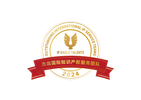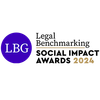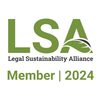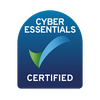EU trade mark law provides that, if a trade mark hasn’t been put to genuine use within a continuous period of five years in the EU (in connection with the goods or services in respect of which it is registered) — and there are no proper reasons for non-use — its registration can be revoked. This legislation therefore puts into effect the trade mark adage ‘use it or lose it’.
The question of when to apply for a trade mark can be entirely dependant on your unique situation. With this in mind, a recent decision presents important learnings for pharmaceutical companies thinking of applying too soon.
Use it or lose it
Viridis Pharmaceutical Ltd applied to register the trade mark BOSWELAN at the EUIPO on 30 September 2003. The BOSWELAN drug is intended as a treatment for multiple sclerosis and the application covered “pharmaceuticals and health products” in class 5 of the Nice classification.
On 18 November 2013, Hecht-Pharma submitted an application for revocation of the BOSWELAN trade mark. The Cancellation Division of the EUIPO found that Viridis hadn’t put the BOSWELAN trade mark to genuine use and revoked the registration. Viridis appealed to the EUIPO Board of Appeal, which maintained that the evidence of use provided referred to acts of a purely internal nature concerning a clinical trial, and therefore didn’t prove genuine use.
It has long been held in EU trade mark case law that genuine use of a trade mark must relate to goods or services which are already (or about to be) marketed and for which preparations to secure customers are underway, particularly in the form of advertising campaigns — internal use by the proprietor doesn’t suffice. The use must involve real commercial exploitation of the mark on the market for the relevant goods or services. A clinical trial isn’t directed to the market for the goods.
Where there’s a will, there’s a way
Under the TRIPS agreement, circumstances arising independently of the will of the owner of the trade mark which constitute an obstacle to its use, such as import restrictions or other government requirements for goods or services protected by the trade mark, can be recognised as valid reasons for non-use. A clinical trial might therefore satisfy this requirement. However, it was in the control of Viridis to increase investment in the clinical trial to shorten its duration. The Board of Appeal therefore found that the obstacle (the clinical trial which prevented Viridis from obtaining a marketing authorisation) wasn’t independent of Viridis’ will.
Following a failed appeal to the General Court, a final appeal was made to the Court of Justice of the European Union (CJEU), which has now issued its decision. Viridis argued that the five-year term of non-use is insufficient for the pharmaceutical sector, given the limited circle of buyers and the number of participants in clinical trials. However, the CJEU held that the five-year term applies regardless of economic sector and this argument is therefore ineffective.
The pitfalls of applying early
The CJEU stated that it was Viridis’ own decision to apply for the trade mark registration in 2003, at a time when there was a strong uncertainty on whether or not the clinical trial might be successful — and therefore whether marketing authorisation would be granted. Furthermore, it was insufficient investment by Viridis which led to the failure to conclude clinical trials. The appeal was therefore rejected.
As a consequence, although the CJEU didn’t rule out that in some circumstances clinical trials might be seen as a legitimate reason for non-use to circumvent the five-year period, each case will be decided on its own merits. It’s therefore wise for trade mark owners in the pharmaceutical sector to apply for a trade mark registration only when it’s likely that clinical trials will be concluded and marketing authorisations achieved within the forthcoming five-year period.
If you’re looking to register trade marks for pharmaceutical products, feel free to get in touch with us.



















